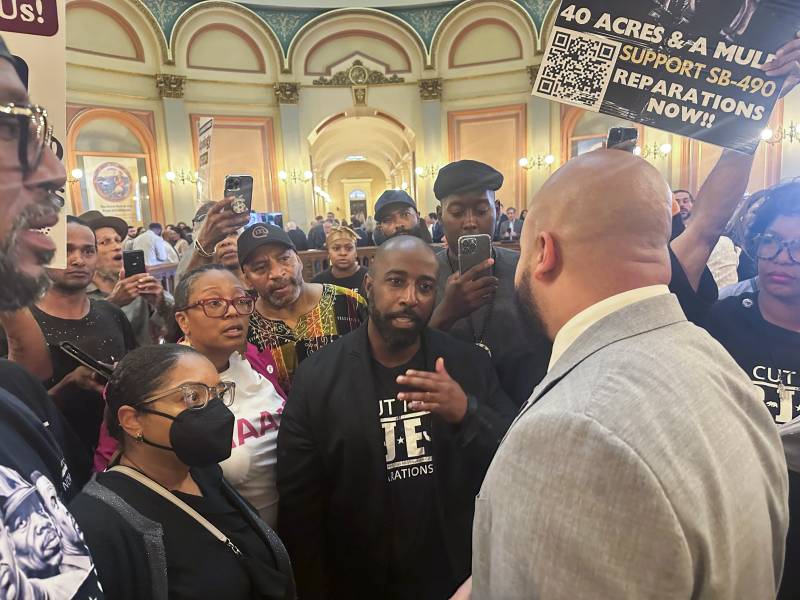The reparations bills now head to Gov. Gavin Newsom, who has until Sept. 30 to decide whether to sign them into law.
The Democratic governor hasn’t weighed in on most of the bills, but he signed a $297.9 billion budget in June that included up to $12 million for reparations legislation. However the budget did not specify what proposals the money would be used for, and his administration has signaled its opposition to some of them.
Newsom approved a law in 2020 creating a first-in-the-nation task force to study reparations proposals. New York state and Illinois have since followed suit with similar legislation. The California group released a final report last year with more than 100 recommendations for lawmakers.
Newsom signed a law last month requiring school districts that receive state funding for a career education program to collect data on the performance of participating students by race and gender. The legislation, part of a reparations package backed by the California Legislative Black Caucus, aims to help address gaps in student outcomes.
Here are some of the most significant bills lawmakers approved this week:
Returning seized property
The state Senate overwhelmingly approved the bill on the return of land or compensation to families whose property was taken unfairly through racially discriminatory means using eminent domain.
The topic garnered renewed attention in California when Los Angeles-area officials returned a beachfront property in 2022 to a Black couple decades after it was seized from their ancestors.
The Newsom administration’s Department of Finance opposes the bill. The agency says the cost to implement it is unknown but could “range from hundreds of thousands of dollars to low millions of dollars annually, depending on the workload required to accept, review, and investigate applications.”
It’s not immediately clear how the initiative would be enacted even if Newsom signs it into law, after lawmakers dropped the measure to create an agency to implement it. That proposal would have formed a genealogy office to help Black Californians research their family lineage and verify their eligibility for any reparations that become law.
Formal apology
California would accept responsibility and formally apologize for its role in perpetuating segregation, economic disparities and discrimination against Black Americans under another bill the Legislature approved.
The legislation requires the secretary of state to send a final copy of the apology to the state archives, where it could be viewed by the public.
The apology would say that the state “affirms its role in protecting the descendants of enslaved people and all Black Californians as well as their civil, political, and sociocultural rights.”
Associated Press writer Trân Nguyễn contributed to this report. Austin is a corps member for The Associated Press/Report for America Statehouse News Initiative.

